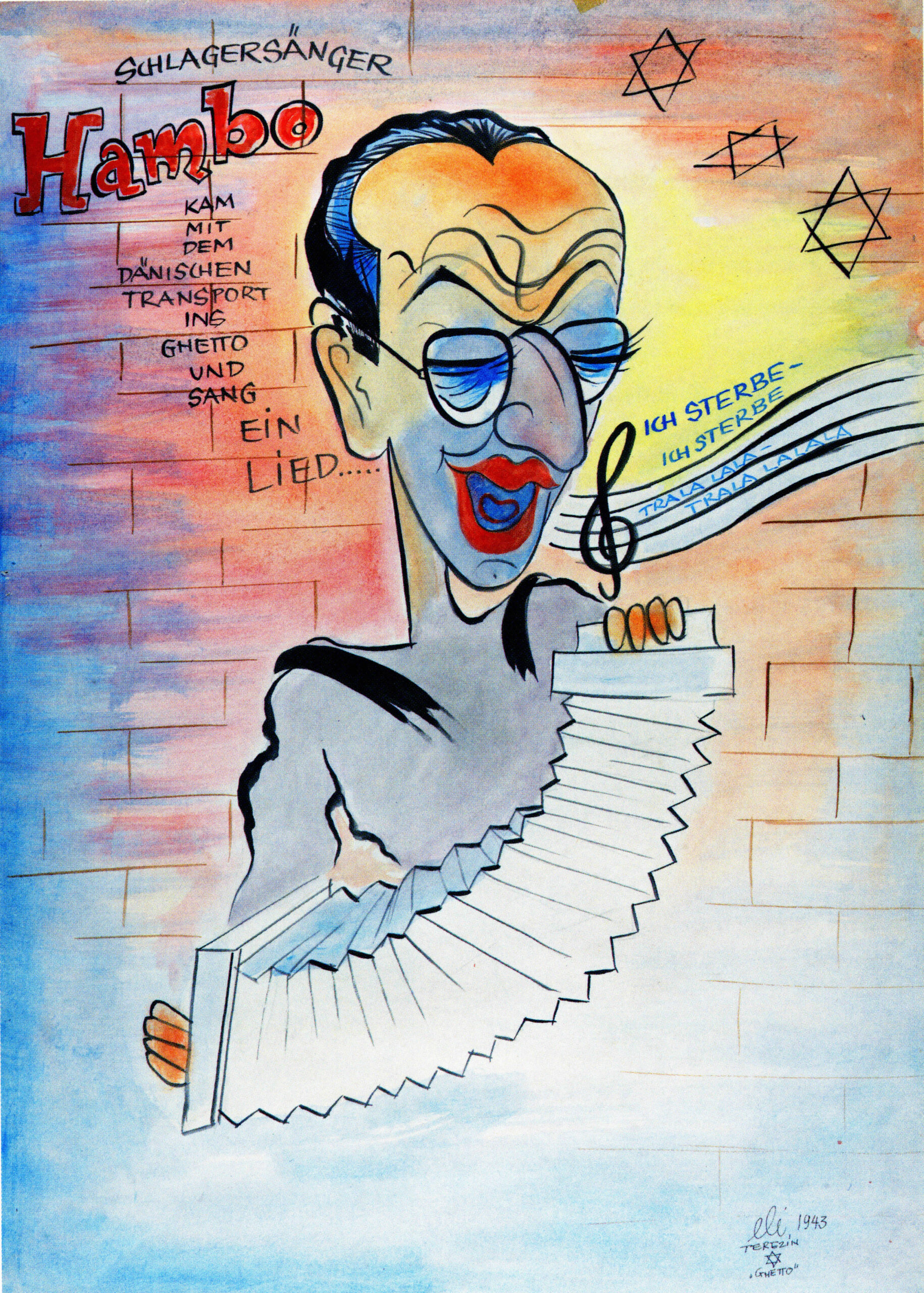
Robert Beachy has published a number of books and edited collections in the fields of urban history, gender history, and social history. His most recent monograph Gay Berlin: Birthplace of a Modern Identity won the Randy Shilts Triangle prize in nonfiction and was named a Stonewall Honor Book by the American Library Association. The book has also appeared in German and Italian translations. Beachy is Professor of History at the Underwood International College of Yonsei University in Seoul, and is now working on a history of the Nazi persecution of homosexual men.

Dr Birgit Bosold has been a member of the management board at Schwules Museum*, Berlin’s Gay Museum, – and its first female member – since 2006. In this role she is responsible for the organization’s finances and has played an important part in changing the Museum’s strategic focus. Moreover, she curated the exhibition Gender-Gap (2011), a show featuring artistic positions on the FIFA Women’s World Cup. She has also designed exhibitions outlining the work of various photographers – Petra Gall, whose extensive archive with its significance for contemporary history she has succeeded in acquiring for Schwules Museum* (2012), Zanele Muholi, as part of a cooperation agreement with Amnesty International, and Krista Beinstein (2016). Bosold was also project manager and co-curator of the exhibition Homosexualität_en initiated by Schwules Museum* in collaboration with Deutsches Historisches Museum. In 2016 she was awarded the “Kompassnadel” for her involvement by Schwules Netzwerk NRW, the State of North Rhine-Westphalia’s self-help network for gays.
Bosold actually comes from the field of private banking; after completing her studies and receiving a doctorate in literature she spent many years with various renowned banks and currently works as a freelance consultant in the field of portfolio management, advising companies, foundations and private individuals. She is also a writer and lecturer in her specialist field.
Sonja Dolinsek is a doctoral student at the Chair of Global History of the 19th Century at Erfurt University and associate lecturer (Lehrbeauftragte) at Humboldt-Universität zu Berlin. She was a Research Associate at the Five College Women’s Studies Research Center at Mount Holyoke College in 2016. Her research interests include transnational and global history and gender history, with a focus on human rights, crime and labor as well as theory and methods. Currently, she is working on her PhD project on the “Transnational politics of sexual labor in the second half of the 20th century” with a focus on the conceptualization of prostitution and trafficking in relation to human rights, labour and sexuality. Recent and forthcoming publications include “Konvention zur Unterbindung des Menschenhandels (1949) und Erklärung über Prostitution und Menschenrechte (1986),” Quellen zur Geschichte der Menschenrechte, ed. by Arbeitskreis Menschenrechte im 20. Jahrhundert, September 2016; “Menschenrechte und die ‘Prostituierte’ im 20. Jahrhundert,” Carola Sachse and Roman Birke, eds., Das Geschlecht der Menschenrechte im 20. Jahrhundert, (Göttingen: Wallstein, forthcoming 2018); „Gehandelte Frau oder unerwünschte Fremde? Zur Geschichte der Prostituierten als Migrantin“, Ariadne. Forum für Frauen- und Geschlechtergeschichte, 72, 2018.

Jennifer Evans is Professor of History at Carleton University in Ottawa Canada and is a member of the College of New Scholars, Royal Society of Canada. She teaches a variety of courses in contemporary German and European history with interests in the history of sexuality, Holocaust memory, social media and visual culture. She has written Life Among the Ruins: Cityscape and Sexuality in Cold War Berlin (Palgrave Macmillan, 2011, and co-edited Queer Cities, Queer Cultures: Europe Since 1945 (Bloomsbury, 2012), and Was Ist Homosexualität (Männerschwarm, 2012) and The Ethics of Seeing: Photography and 20th Century German History (Berghahn, 2018). She has also written on the history of homophobia in East and West Germany and the role of photography in articulating queer forms of desire during the Sexual Revolution. She is currently writing a book for Bloomsbury on Holocaust memory in the digital mediascape and is co-curator of the New Fascism Syllabus (www.thehistoryinquestion).

Camille Fauroux holds a PhD from the EHESS in Paris. Her dissertation considers how transnational wartime labor policies and discourses shaped the intimate, daily lives of the 80,000 women who departed from France to work in Nazi Germany between 1940 and 1944. She is currently working on a book based on her research.
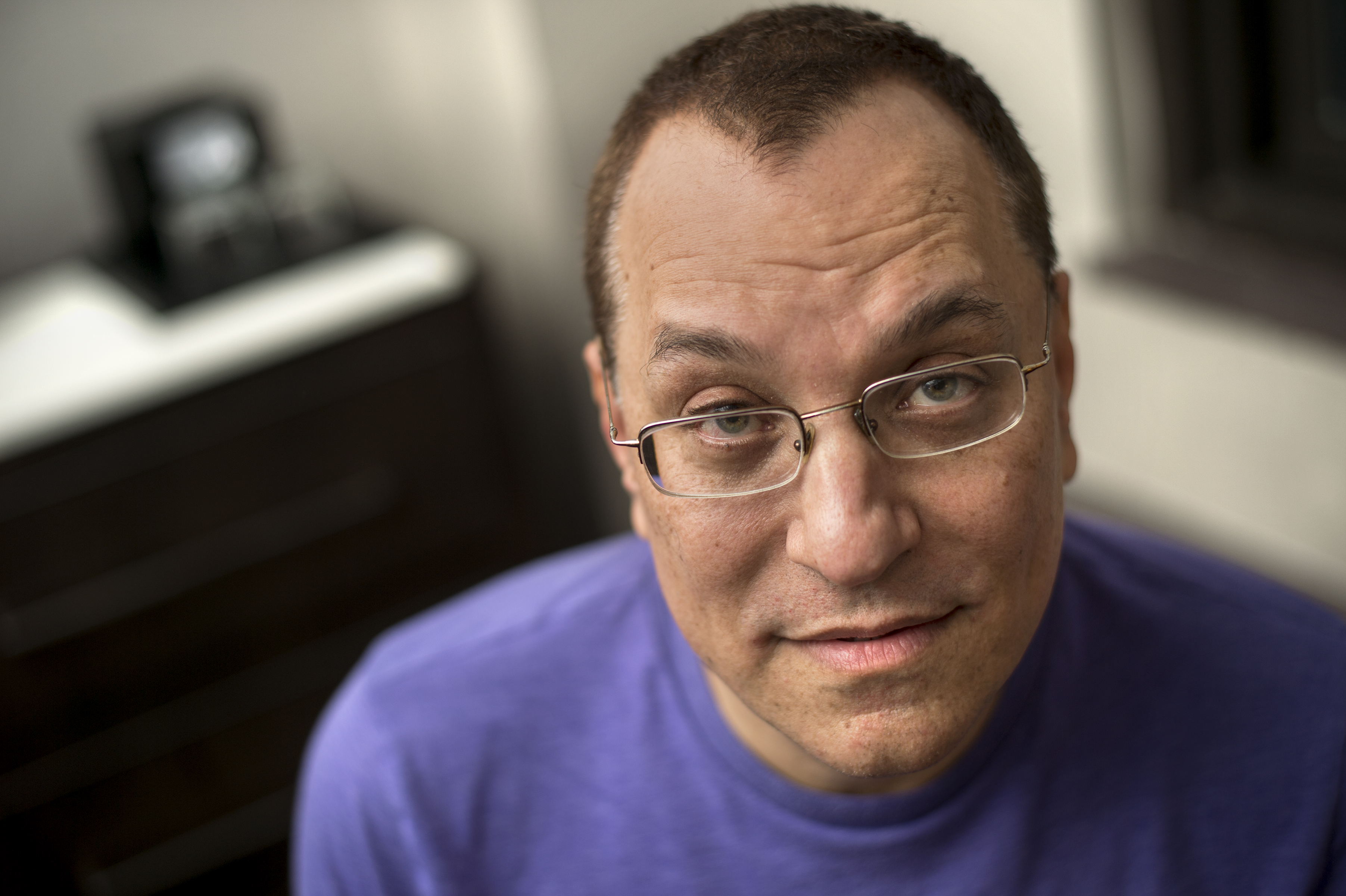
Kenny Fries is the author, most recently, of In the Province of the Gods, which received the Creative Capital literature grant. His other work includes The History of My Shoes and the Evolution of Darwin’s Theory, which received the Outstanding Book Award from the Gustavus Myers Center for the Study of Bigotry and Human Rights, and Body, Remember: A Memoir. He is the editor of Staring Back: The Disability Experience from the Inside Out and was commissioned by Houston Grand Opera to write the libretto for The Memory Stone. He was a Creative Arts Fellow of the Japan-U.S. Friendship Commission and the National Endowment for the Arts, twice a Fulbright Scholar (Japan and Germany), and has received grants from the DAAD (German Academic Exchange), Canada Council for the Arts, Ontario Arts Council, and Toronto Arts Council. He teaches in the MFA in Creative Writing Program at Goddard College. His current work-in-progress is Stumbling over History, which looks at Aktion T4, the Nazi “euthanasia” program, and its connection to the Holocaust, the lives of people with disabilities today, as well as current debates such as genetic testing and assisted suicide. He is also co-curating with Birgit Bosold “Queering the Crip, Cripping the Queer,” an exhibit on the intersectionality of being queer and disabled for the Schwules Museum*.

Dr Andrea Genest studied political science and German literature at the Free University Berlin. She wrote her PhD on the anti-Semitic campaign in Poland 1968 and its perception in Poland. In her research, she focuses on Polish and German contemporary history as well as history of memory. She worked as a research associate at the Free University Berlin and the Potsdam Center on Contemporary History as well as at the Memorial Museums Auschwitz-Birkenau, Ravensbrück, Sandbostel, and the German Resistance Memorial Centre and the Marienfelde Refugee Centre Museum. Currently she works at the Nazi Forced Labour Documentation Centre Schöneweide (Berlin).
Her publications include “Die Gruppe der polnischen Häftlinge im Konzentrationslager Ravensbrück,” in: Insa Eschebach, ed.: Das Frauen-Konzentrationslager Ravensbrück: Neue Beiträge zur Geschichte und Nachgeschichte (Berlin: Metropol, 2014), pp. 67–93; “Sandbostel – ein sperriger Erinnerungsort,” in: Henrik Bispinck and Katharina Hochmuth, eds.,: Flüchtlingslager im Nachkriegsdeutschland (Berlin: Links, 2014), pp. 254–272; “Die Rezeption der antisemitischen Kampagne 1968 in Polen,” in: Jahrbuch des Simon-Dubnow-Instituts (Leipzig: Vandenhoeck & Ruprecht, 2010), pp. 207–229.

Dorota Głowacka is Professor of Humanities in the Contemporary Studies Program at the University of King’s College in Halifax, Canada, where she teaches classes in Holocaust and genocide studies, gender studies, philosophy of race, and critical theory. She is the author of Po tamtej stronie: świadectwo, afekt, wyobraźnia (From the Other Side: Testimony, Affect, Imagination; Institute of Literary Studies of the Polish Academy of Science, 2017), and of Disappearing Traces: Holocaust Testimonials, Ethics, and Aesthetics (University of Washington Press, 2012). She is co-editor of Between Ethics and Aesthetics: Crossing the Boundaries (SUNY Press, 2002) and Imaginary Neighbors: Mediating Polish-Jewish Relations after the Holocaust (Nebraska UP, 2007) and editor of the special issue on “Community” of Culture Machine” (2006). Glowacka has published numerous book chapters, journal articles, reviews and encyclopedia entries in the field of Holocaust studies, especially on Holocaust literature and art, and on Polish-Jewish relations after the Holocaust. She is currently a William J. Lowenberg Memorial Fellow on America, the Holocaust, and the Jews Senior Fellow in the Jack, Joseph and Morton Mandel Center for Advanced Holocaust Studies at the United States Holocaust Museum in Washington D.C.
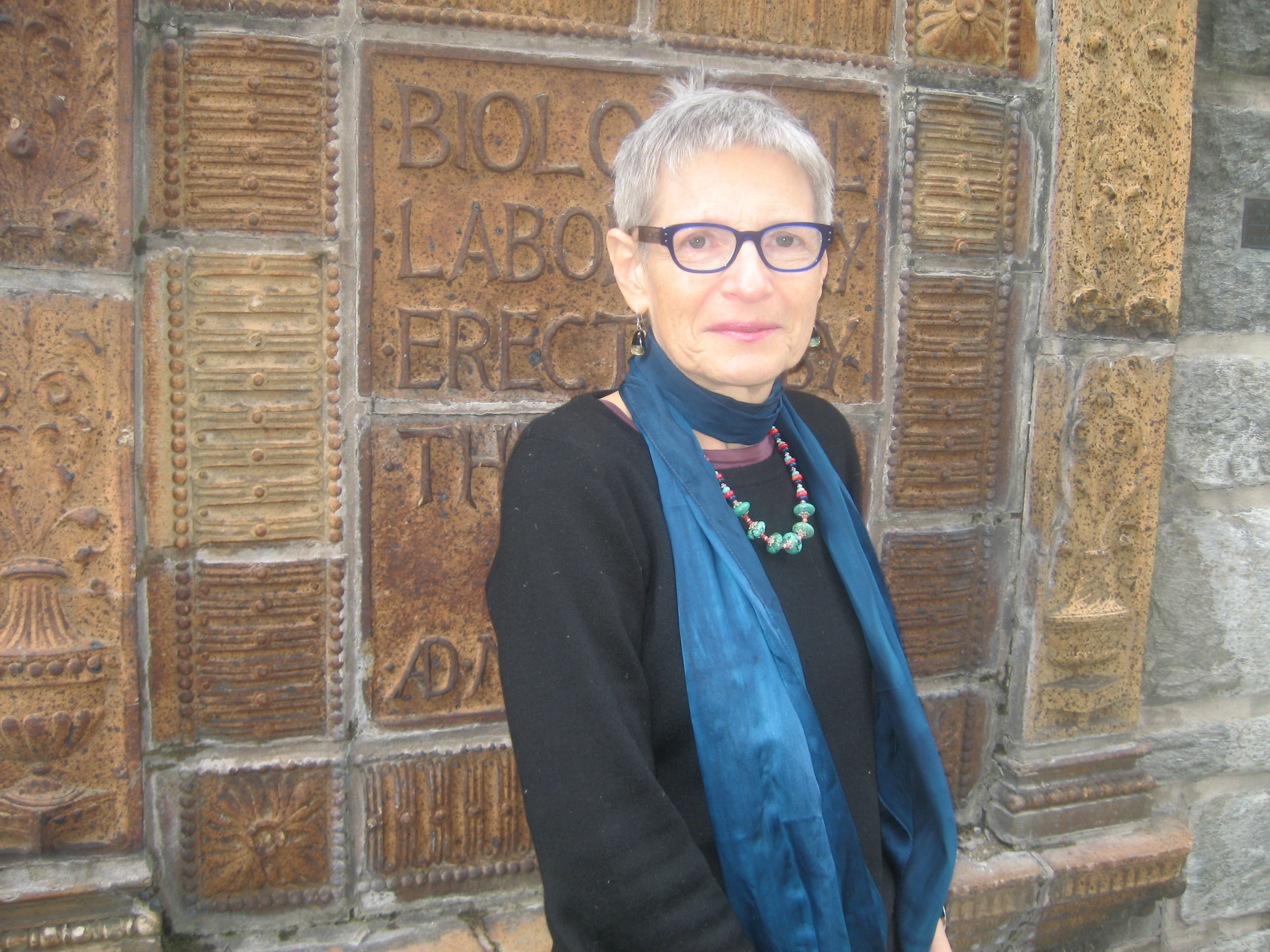
Atina Grossmann is Professor of History in the Faculty of Humanities and Social Sciences at the Cooper Union in New York City. Publications include Jews, Germans, and Allies: Close Encounters in Occupied Germany (2007, German 2012), Wege in der Fremde: Deutsch-jüdische Begegnungsgeschichte zwischen New York, Berlin und Teheran (2012), and Reforming Sex: The German Movement for Birth Control and Abortion Reform, 1920-1950 (1995); co-edited volumes on Crimes of War: Guilt and Denial in the Twentieth Century 2002) and After the Nazi Racial State: Difference and Democracy in Germany and Europe (2009), as well as Shelter from the Holocaust: Rethinking Jewish Survival in the Soviet Union (with M.Edele and S. Fitzpatrick) and The JDC at 100: Essays on the 100th Anniversary of the American Jewish Joint Distribution Committee (with A Patt, L. Levi, M. Maud), both forthcoming 2017. She is working, together with Dorota Glowacka, on a brief summary volume (Bloomsbury) on Women and the Holocaust: Rewriting Gender in History and Memory, and her current research focuses on “Remapping Survival: Jewish Refugees and Lost Memories of Displacement, Trauma, and Rescue in the Soviet Union, Iran, and India,” as well as the entanglements of family memoir and historical scholarship.
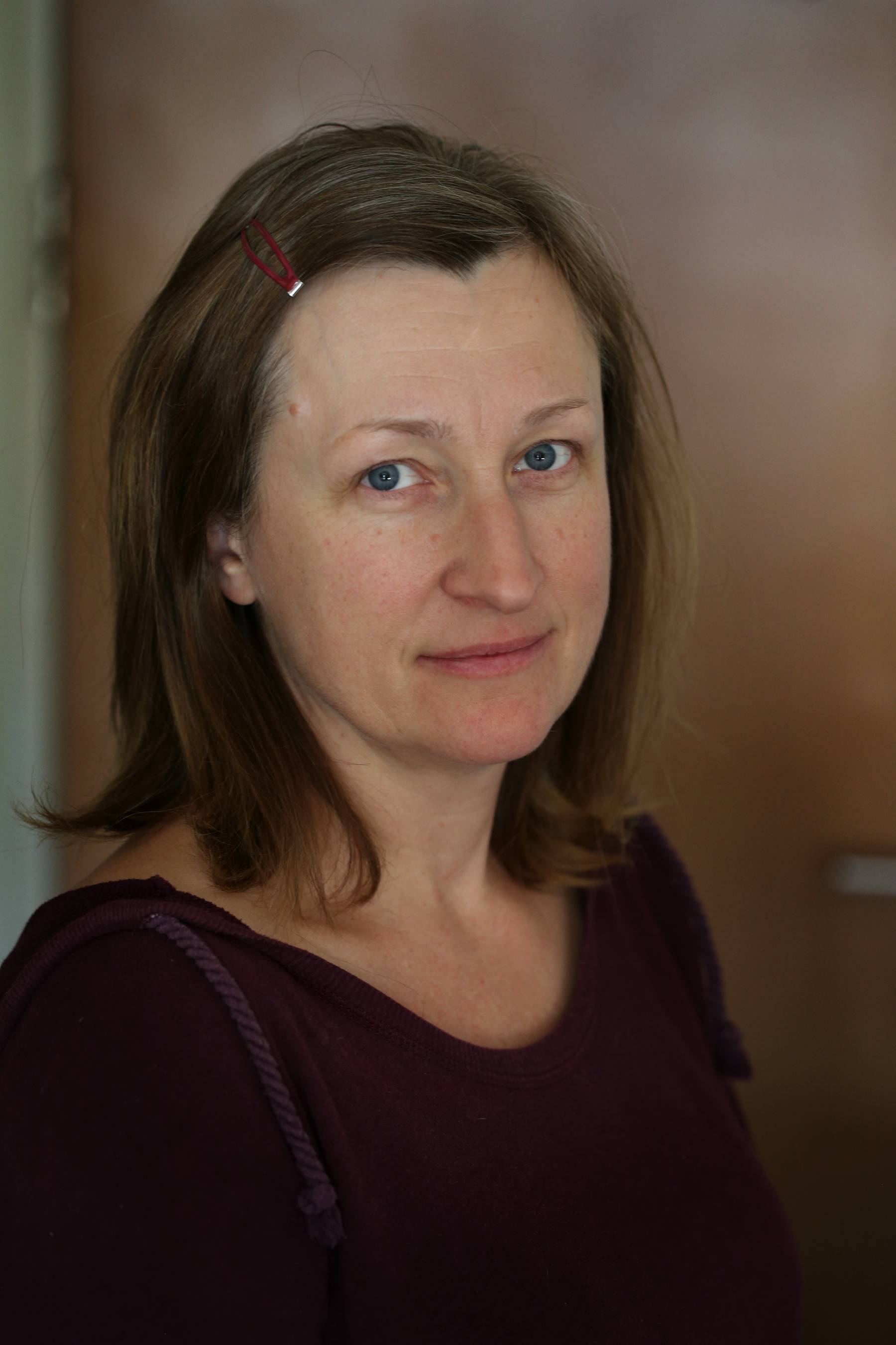
Katya Gusarov was born 1968 in the USSR, in Narofominsk near Moscow. Finished school in 1986, and studied English language & literature at Moscow Institute. She made Aliya to Israel in 1990, where she studied History at the Hebrew University of Jerusalem. Since 1993, she has been working at Yad Vashem’s department of the Righteous.

Wiebke Haß lives in Hamburg and works as a physiotherapist. Irmes Schwager works in the Autonomous Women’s Shelter in Kassel. For many years they have been activists in the autonomous women and lesbian movement on the topics of misogyny, violence and racism. Common activity: feminist lesbian magazine “Krampfader”. Since 1992 they have been attending seminars and the annual anniversaries of liberation day at the Ravensbrück Memorial, since 2014 with a ceremony to commemorate lesbian women imprisoned and murdered in Ravensbrück and Uckermark. Wiebke Haß (member of Lagergemeinschaft Ravensbrück/Freundeskreis e.V.) and Irmes Schwager belong to the Initiative of autonomous feminist women and lesbians from Germany and Austria for a “Gedenkkugel” – a commemoration orb for lesbian prisoners at the site of the former women’s concentration camp Ravensbrück.
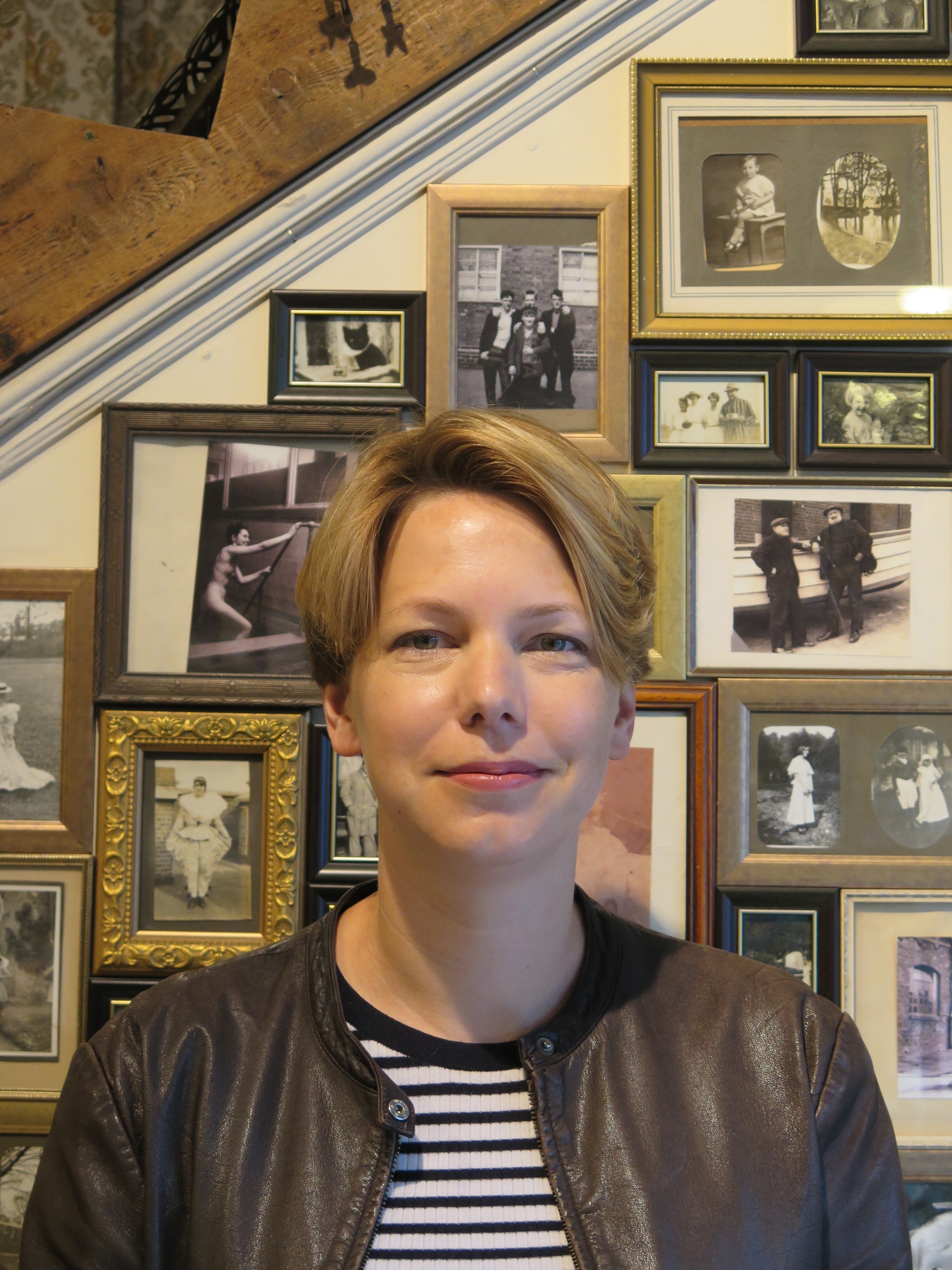
Anna Hájková is Assistant Professor of Modern Continental history at the University of Warwick. Her book manuscript on everyday history of Theresienstadt was awarded the Irma Rosenberg as well as the Herbert Steiner prize for 2014. She was coeditor of Theresienstädter Studien und Dokumente, and she also co-edited Alltag im Holocaust: Jüdisches Leben im Großdeutschen Reich, 1941-1945. Her essay on sexual barter received the Catharine Stimpson Prize for Outstanding Feminist Scholarship 2013. She is working on a project on transgressive sexuality in the Holocaust. Together with Birgit Bosold, she enjoys co-organizing this conferences and various other conspiracies.
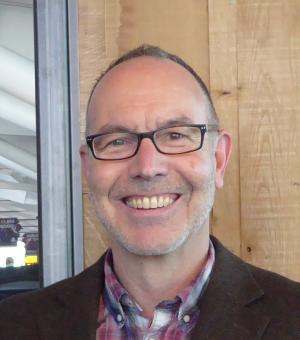
Dan Healey is Professor of Modern Russian History in the History Faculty, University of Oxford. His research and publications have concentrated on the social and cultural history of modern Russia and the Soviet Union. He has been most interested in the history of sexualities and gender in modernising Russia, and particularly the role of medicine and law in shaping the regulation of sexual and gender dissent and conformity. He has explored the history of homosexuality in tsarist and Soviet Russia, the nature of masculinity under socialism, and the problems of sexual disorders and sexual violence in twentieth-century Russia. His published work includes the soon-to-be-released Russian Homophobia from Stalin to Sochi (London, 2017); his first book, Homosexual Desire in Revolutionary Russia: The Regulation of Sexual and Gender Dissent (Chicago, 2001), with a Russian translation issued in 2008, and Bolshevik Sexual Forensics: Diagnosing Disorder in the Clinic and Courtroom, 1917-1939(DeKalb, Il., 2009). Recently he has begun a study of the history of medicine in the Stalinist Gulag. He is interested in the range of medical services, personnel, and practices in the Soviet forced-labour camp system, and how medicine was experienced by prisoners as patients.

Susanne Heim, historian, political scientist, PhD habilitation at the Free University Berlin (2002); since 2005 project coordinator at the editorial project „The Persecution and Extermination of European Jews by Nazi Germany 1933-1945“. 2009/2010: Guest professor at University of Vienna; 2004/2005: Research Director of the Research Program of the Max-Planck- Society “History of the Kaiser-Wilhelm Society in the National Socialist Era; 2003 Charles H. Revson Foundation Fellowship for Archival Research at the United States Holocaust Memorial Museum, Washington D.C.; 1996/97 Fellowship at the International School for Holocaust Research at Yad Vashem, Jerusalem.
edition-judenverfolgung.de/neu/

Gina Herrmann is Associate Professor of Spanish and Judaic Studies at the University of Oregon, USA. She is the author of various titles on Spanish Communist culture, including Written in Red: Communist Memoir in Spain (2010) and (with O. Ferrán) A Companion to Jorge Semprun: Buchenwald, Before and After (2014). Herrmann is a a National Endowment for the Humanities (USA) fellow for 2071-18 during which she will complete the monograph, Voices of the Vanquished: Spanish Women of the Left between Franco and Hitler. She is also the co-editor of the forthcoming, Spain, World War II and the Holocaust: History and Representation.
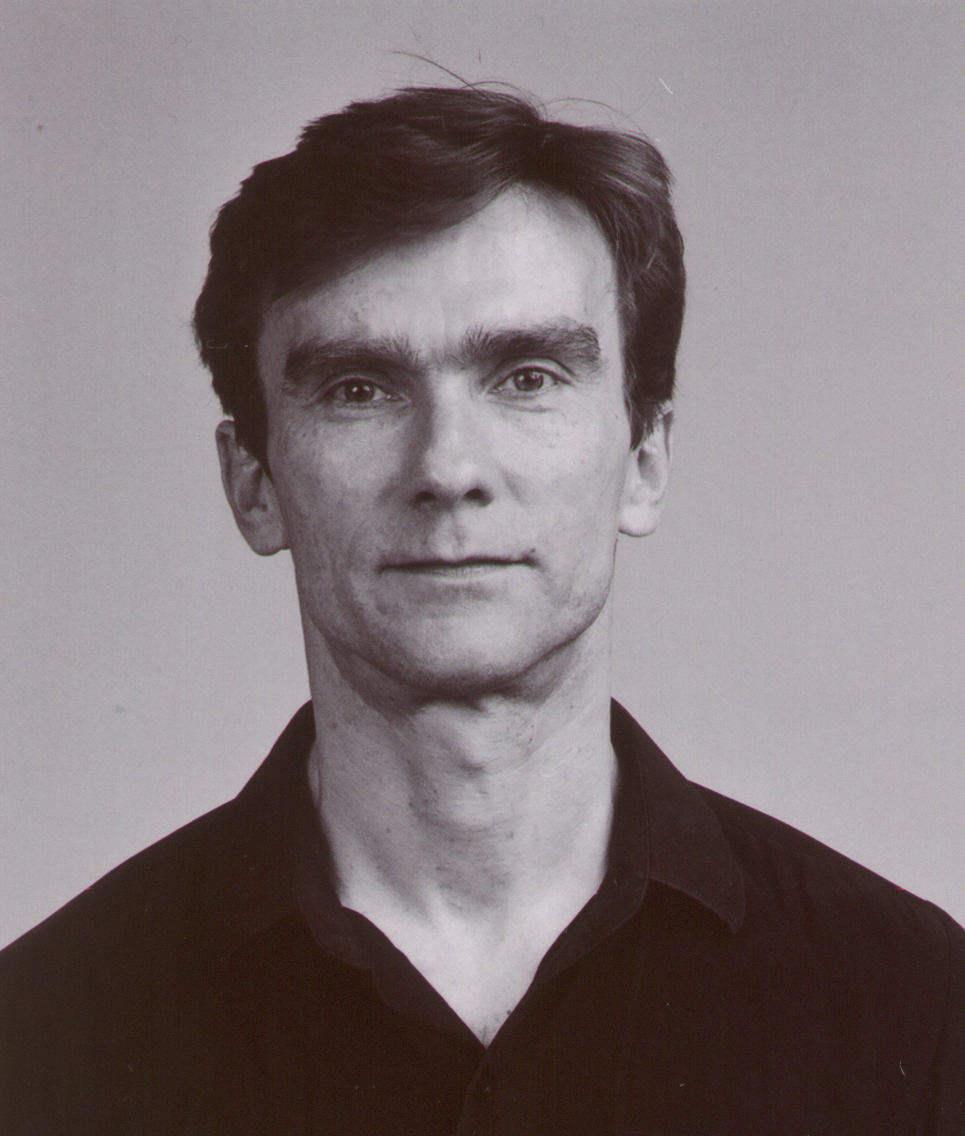
Rainer Herrn, Dr., since 2008, Rainer Herrn has been a researcher at the Institute for the History of Medicine and Ethics in Medicine at the Charité Hospital in Berlin. Since 19991, he has also worked at the Research Center for the History of Sexual Science of the Magnus-Hirschfeld-Gesellschaft, also in Berlin. Exhibitions, lectures, teaching, essays and books on the history of psychiatry, psychoanalysis and sexual science since 1850. Topics of his research include the establishment, function, and practice of the disciplines as ways of interpreting and negotiating psychic, sexual and gender difference and otherness in the modern urban age.

Dagmar Herzog is a historian of sexuality and Distinguished Professor of History and Daniel Rose Faculty Scholar at the Graduate Center, City University of New York. She has also published extensively on the history of religion and the history of the Holocaust and its aftermath. She is the author of five books, including Sex after Fascism: Memory and Morality in Twentieth-Century Germany (2005) and Sexuality in Europe: A Twentieth-Century History (2011) as well as, most recently, Cold War Freud: Psychoanalysis in an Age of Catastrophes (2017), and she has edited six volumes, including Brutality and Desire: War and Sexuality in Europe’s Twentieth Century (2009) and After the History of Sexuality: German Genealogies With and Beyond Foucault (2012). She was recently named coeditor of the journal Psychoanalysis and History. She is currently preparing a new project on eugenics, disability, and reproductive self-determination in twentieth-century Europe.

Ulrike Janz is born in 1956 to a working class family in the far-west german region called „Ruhrgebiet“ (Ruhr area), a meanwhile postindustrial melting-pot & ex-center of coal mining and steelproduction. She got a degree in psychology and many years later in dance education (improvisation/dancetheater). She worked some years as cinema operator, many as instructor on relaxation techniques and c.r.courses for women, almost 20 years in operating a feminist bookstore & since 2007 as coordinator in a feminist anti-violence NGO – mainly on intervention in the health consequences of violence. She co-edited the „radical feminist lesbian magazine“ IHRSINN for 15 years (till 2004) and has been part of several feminist and lesbian-feminist groups & networks (including Lesbenring, LAG Lesben NRW, Lesbians & Buddhism). The main issues she researched in a non-university, activist context have been violence angainst women & girls, reproductive & genetic engineering & international population policies, women/lesbians in german facism/ as victims/perpetrators and in between, lesbian history, violence in lesbian relationships/violence against lesbians/lesbians against violence, Hannah Arendt read from a lesbian feminist perspective, lesbians and poverty/money/economy, lesbians and menopause (ed. Book 2004 „Verwandlungen“ – eng. Transformations, Krug & Schadenberg, Berlin), lesbians in older age and herstory of the lesbian movement(s) in the Ruhr area. Most of her texts got published in lesbian/feminist journals (esp. IHRSINN & beiträge zur feministischen theorie und praxis), anthologies and different kind of „grey“ literature (documentations, brochures), some can be found today on www.lesbengeschichte.de. 2014 a text on „ the mark/sign lesbian in national-socialist concentration camps“ (Das Zeichen lesbisch in den nationalsozialistischen Konzentrationslagern) got published in Schwartz, Michael (ed.): Homosexuelle im nationalsozialismus, München 2014. After living for 30 years in Bochum she changed her home base in 2006 to neighbouring Dortmund and enjoys to live in one of the so-called „modern beguinages“ – fairly or more lesbian-welcoming women housing projects with a common historical thread, but contemporary diverse orientations.

Ulrike Jensen * 1961, M.A., historian. Head of the pedagogical staff within the branch “Education and Center for Historical Studies” in the Neuengamme Concentration Camp Memorial; thematic focusses e.g. Specific persecution and survival strategies of female concentration camp prisoners, forced sex-work in the concentration camp, life after survial, Skandinavian concentration camp prisoners, memory culture.
Recent publications: Die Rettung der skandinavischen Häftlinge im Rahmen der “Aktion Weiße Busse“, in: Deutsche Geschichte in Dokumenten (Loseblatt-Sammlung). Braunschweig 2016; Dilemma Perspective: Different Narratives Concerning the Remembrance of the White Buses, in: Helle Bjerg/Andreas Körber/Claudia Lenz/Oliver von Wrochem (Hg.): Teaching Historical Memories in an Intercultural Perspective. Concepts and Methods, Berlin (Hamburg 2014, S. 205-226); Studientage mit Bundeswehrgruppen – Projektbericht und konzeptionelle Überlegungen. Aktuelle Rahmenbedingungen der Bildungsarbeit mit Bundeswehrgruppen an der KZ-Gedenkstätte Neuengamme, in: Beiträge zur Geschichte der nationalsozialistischen Verfolgung in Norddeutschland 13 (2012), S. 223–228; Ulrike Jensen/Michael Grill: »Auf dem Weg nach Hause«. Skandinavische Häftlinge im KZ Neuengamme und im »Skandinavierlager«, in: Oliver von Wrochem (Hg.): Skandinavien im Zweiten Weltkrieg und die Rettungsaktion Weiße Busse. Ereignisse und Erinnerung, Berlin 2012, S. 71–93.

Birga Meyer specialized in Contemporary European History, Cultural History and Museum Studies and examines in particular the Holocaust, the Second World War and its aftermath. She turns mostly to the representation of history, the construction of historic narratives, their aesthetic and spatial forms and their gendered conceptualizations, employing discourse analysis, narrative theory and visual theory. She wrote her PhD, Difficult Displays: Holocaust Representations in Museums in Austria, Hungary and Italy after 1990 at the University of British Columbia, Vancouver. She co-curated the exhibition Framing Bodies: Sport and Spectacle in Nazi Germany and was a academic researcher for the exhibition More than just Games: Canada and the 1937 Olympics at the Vancouver Holocaust Education Centre. She then worked for the Museum Friedland, where she was part of the academic team developing the permanent exhibition Fluchtpunkt Friedland – Perspectives of Migration: The Transit Camp from 1945 to today. She is currently curating a new permanent exhibition for the memorial and educational site of the House of the Wannsee Conference.
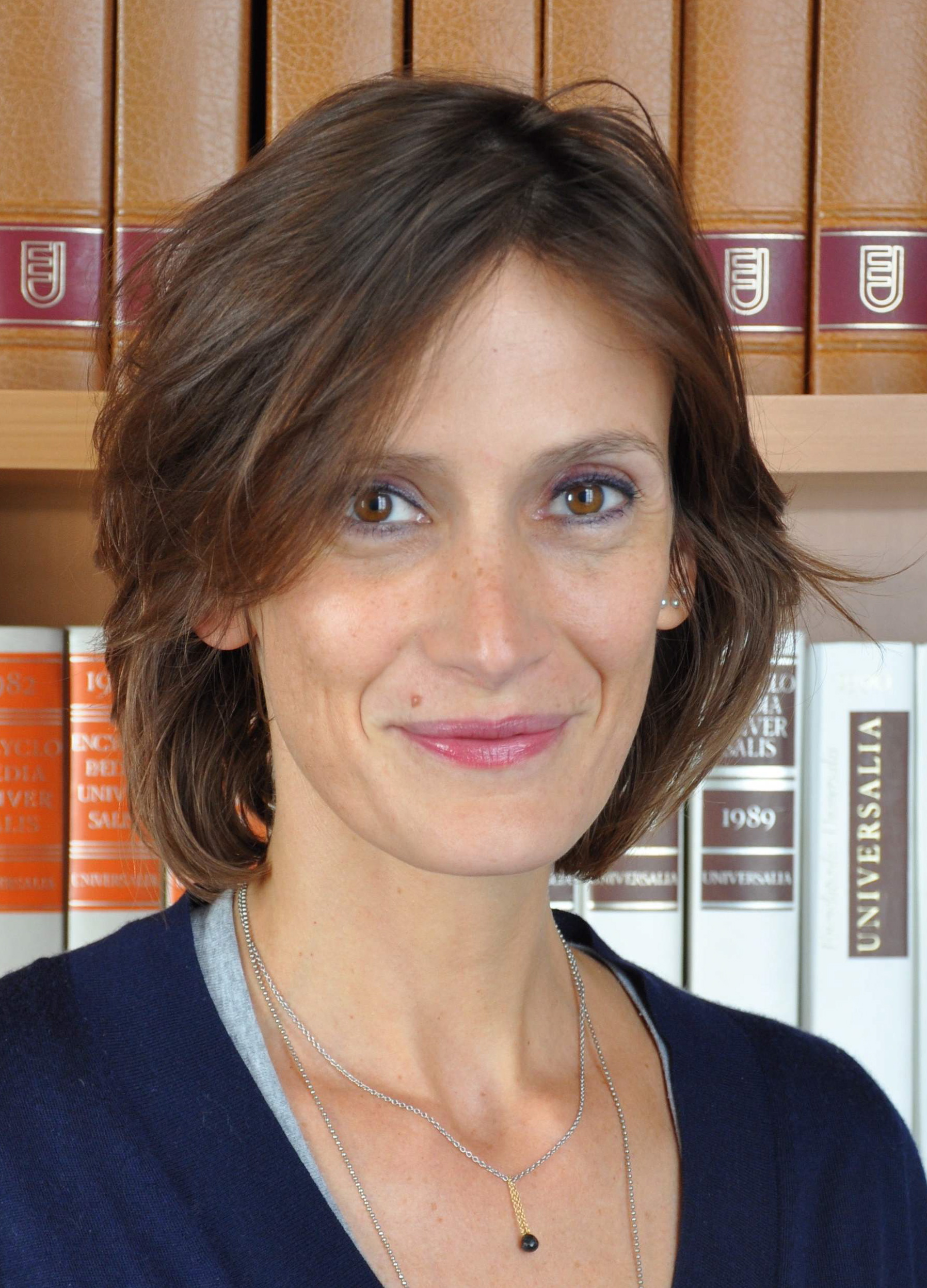
Elissa Mailänder is an Associate Professor of Contemporary History at the Centre d’Histoire de Sciences Po in Paris. Her research and teaching interests are in the fields of the history and theory of violence, gender and sexuality; material culture; and the history of everyday life in 20th century Germany and Austria. Mailänder is an active member of the Hamburg-based international research group Sexual Violence in Armed Conflict (SVAC). In addition to her book on female concentration camp guards and their workaday violence (Gewalt im Dienstalltag. Hamburg: Hamburger Edition 2009; English edition by Michigan State University Press in 2015), she has published several articles on perpetrator history and on the structures, mechanisms and dynamics of Nazi violence. Her new project examines heterosexual relationships in Nazi Germany, highlighting the importance of mass participation and practices of everyday conformity to mass dictatorship. Latest publication: Elissa Mailänder, “Making Sense of a Rape Photograph: Sexual Violence as Social Performance on the Eastern Front, 1939–1944,” Journal of the History of Sexuality, Vol. 26, No. 3, September 2017, p. 489-520.
Regina Mühlhäuser Ph.D., is a senior researcher at the Hamburg Foundation for the Advancement of Research and Culture and an Associate Researcher at the Hamburg Institute for Social Research in Germany. She is a co-founder of the International Research Group ‘Sexual Violence in Armed Conflict’ (SVAC, www.warandgender.net) and a co-coordinator of the Hamburg-based Working Group ‘War and Gender’. Regina has studied history, Korean studies and modern German literature, and worked at the concentration camp memorial site in Neuengamme. She specializes in 20th century history, and her book Eroberungen. Sexuelle Gewalttaten und intime Beziehungen deutscher Soldaten in der Sowjetunion, 1941–1945 (2010) has been translated into Japanese (2015) and is forthcoming in English (Conquests. Sexual Violence and intimate Relations of German Soldiers in the Soviet Union). In 1994, Regina has conducted fieldwork in Korea and China, interviewing former “comfort women”, who had been sexually enslaved by the Japanese Imperial Army during WWII. Currently she is working on the project “On All Fronts: A Comparative Study of How Sexual Violence Was Dealt With during World War II”, in which she compares the measures that the German, Japanese and Allied Forces implemented to control, restrict or instigate sexual violence. In particular, she focuses upon practices and narratives in the British Army in the European and the Asian theater of war.
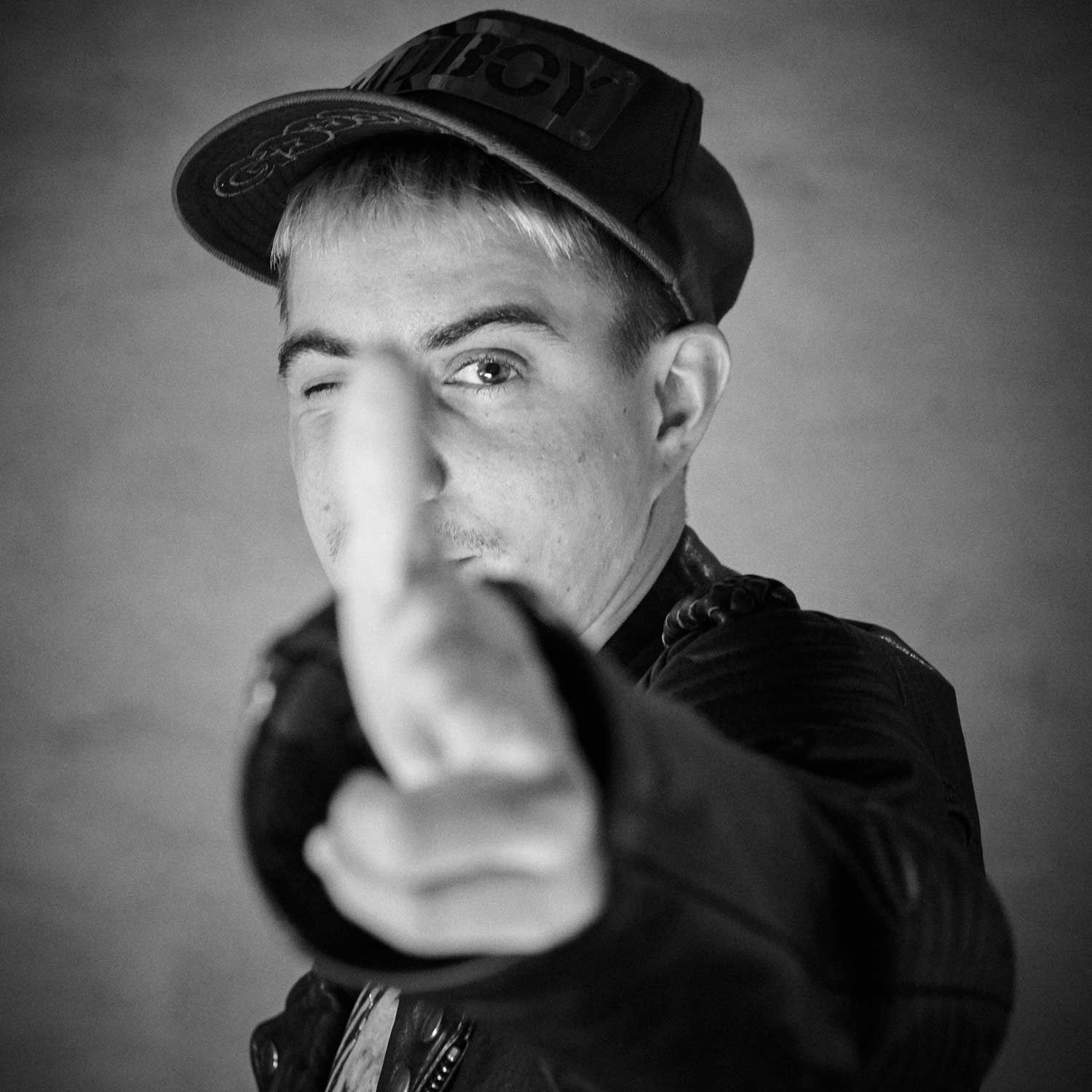
Tucké Royale, born in the GDR in 1984, is a theatre maker, author and musician. Supported by the Rosa Luxemburg Foundation, he studied Judaic Studies and contemporary puppet theatre from 2006 to 2011 at the Ernst Busch Academy of Dramatic Arts. After researching performance art in New York, he went with his 2 solo shows Tucké Royale and I bite my tongue and breakfast on the filling my uncaring parents bequeathed to me to international festivals. As band member and ghost writer Royale went on tour with Hans Unstern. Collaborations with Gintersdorfer Klaßen, Lola Arias, and Talking Straight. Since 2015, Royale has been head spokesperson for the Zentralrat der Asozialen in Deutschland (Central Council of the Asocials in Germany), which he initiated and for which he was awarded stipends from Berlin’s Elsa-Neumann Foundation in 2014 and the Berlin Senate in 2015. In 2016, he founded the Boiband with Hans Unstern and Black Cracker. In October, 2017 his revenge musical, Mit Dolores habt ihr nicht gerechnet thematizing queer Jewish resistance against Nazi-Germany had its premiere.
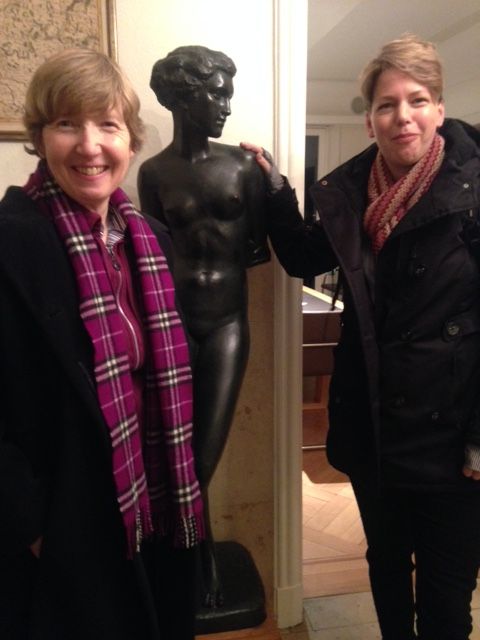
Claudia Schoppmann (left, with Anna Hájková) received a PhD in history at the Technical University Berlin in 1990 for her research on how gender shaped the persecution of homosexuality in Nazi Germany. She has published several books and articles on this subject, including portraits of lesbians in Nazi Germany and Austria (1938-1945). Her book Zeit der Maskierung. Lebensgeschichten lesbischer Frauen im Dritten Reich (1993) was also published in the US (Days of Masquerade, 1996) and the Netherlands. For her efforts to make lesbian history visible she was awarded the Rosa Courage prize (1997) and in 2012 the Zivilcourage prize by CSD (Christopher Street Day) association Berlin.
As staff member of the German Resistance Memorial Center, she co-curated the Silent Heroes permanent exhibit (opened in 2008), depicting the efforts by Gentiles to help Jews in hiding as part of resistance against the Nazi regime.
Latest publications: Violinistin, Katzenfreund und Unbesungener Held – Spurensuche zu Hans Ackermann (1891-1959), in: Mitteilungen der Magnus-Hirschfeld-Gesellschaft Nr. 57, July 2017, and “This Kind of Love”. Descriptions of Lesbian Behaviour in Nazi Concentration Camps, in: Testimony: Between History and Memory, ed. Auschwitz Foundation Brussels, Oct. 2017.
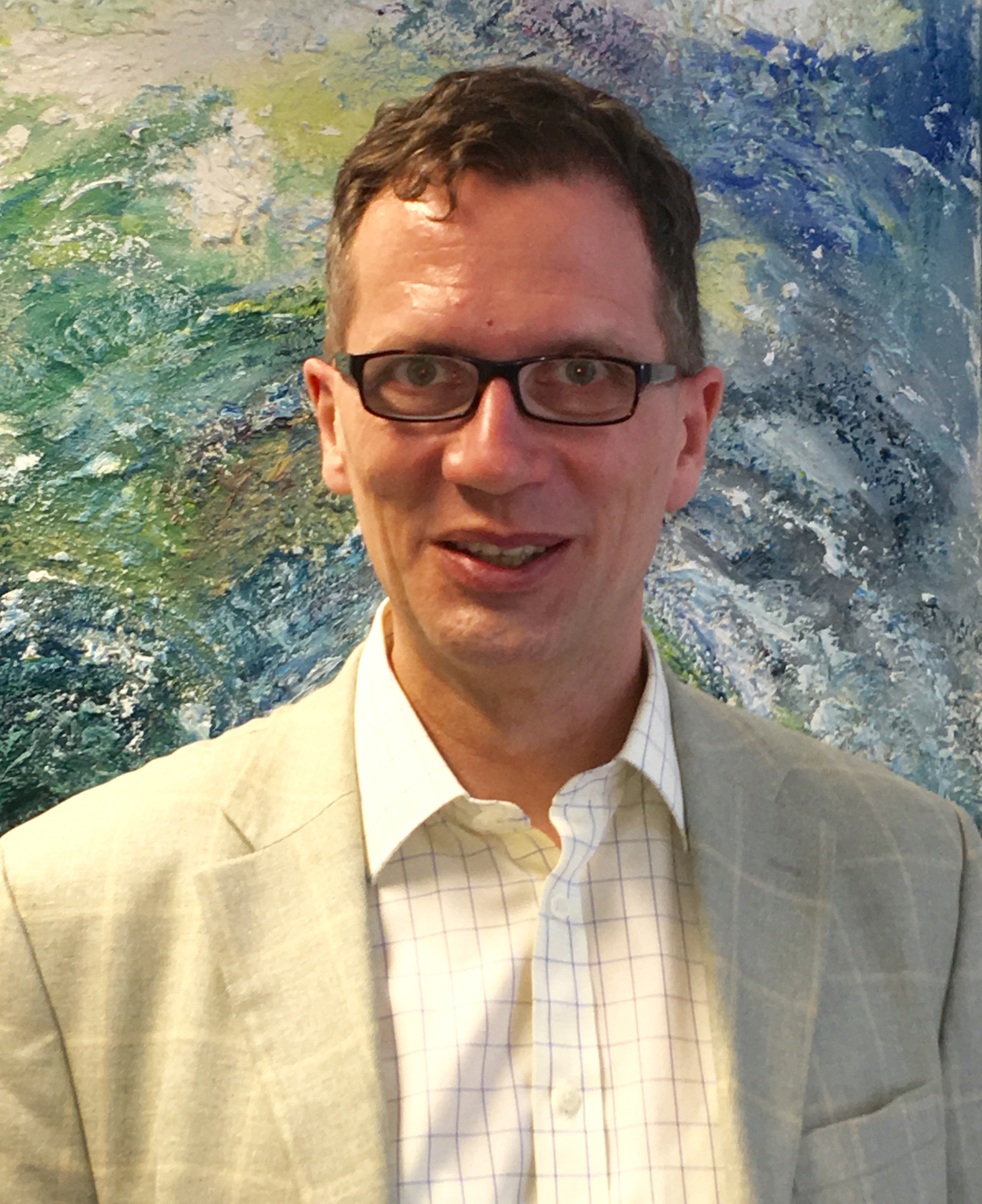
Prof Dr Michael Schwartz is Scientific Fellow at the Institute for Contemporary History Munich-Berlin (Institut für Zeitgeschichte München-Berlin, IfZ) and Professor for Modern and Contemporary History at the Historical Seminary of the University of Münster. His academic research focusses on the German and global history of Eugenics, on the history of “Euthanasia”, on expellee integration in East Germany, on Global History of Modern Ethnic “Cleansings”, and on the History of Sexuality in Germany between 1965 and 2000.
Schwartz has served as member of the Scientific Advisory Council of the Foundation Flight-Expulsion-Reconciliation in the German Historical Museum and is presently acting as President of the Scientific Advisory Council of the Federal Foundation Magnus Hirschfeld.
His main publications are Sozialistische Eugenik. Eugenische Sozialtechnologien in Debatten und Politik der deutschen Sozialdemokratie 1890-1933 (1995), Vertriebene und „Umsiedlerpolitik“. Integrationskonflikte in den deutschen Nachkriegs-Gesellschaften und die Assimilationsstrategien in der SBZ/DDR 1945-1961 (2004), Funktionäre mit Vergangenheit. Das Gründungs-Präsidium des Bundes der Vertriebenen und das „Dritte Reich“ (2013), Ethnische „Säuberungen“ in der Moderne. Globale Wechselwirkungen nationalistischer und rassistischer Gewaltpolitik im 19. und 20. Jahrhundert (2013), and Homosexuelle im Nationalsozialismus. Neue Forschungsperspektiven zu Lebenssituationen von lesbischen, schwulen, bi-, trans- und intersexuellen Menschen 1933 bis 1945 (Ed., 2014).

Annette F. Timm is editor of the Journal of the History of Sexuality and Associate Professor of History at the University of Calgary. Her publications include: The Politics of Fertility in Twentieth-Century Berlin (Cambridge UP, 2010), and Gender, Sex, and the Shaping of Modern Europe: A History from the French Revolution to the Present Day (co-authored with Joshua Sanborn, 2nd edition, Bloomsbury, 2016). She is currently completing a monograph about the Nazi Lebensborn program, and she is engaged in an ongoing collaborative research and curation project exploring the resonance of German sexology in public discourses about sex, sexuality, and transsexuality in Germany and North America. This collaboration produced two exhibitions, PopSex! (2011), and TransTrans (2016), and will be documented in Not Straight From Germany: Sexual Publics and Sexual Citizenship Since Magnus Hirschfeld (University of Michigan Press, forthcoming 2017). A revised version of TransTrans will be stages at the Schwules Museum in Berlin in winter 2019. Dr. Timm is also the editor of a forthcoming book about the Israeli Holocaust survivor and novelist Ka-Tzetnik: Holocaust History and the Readings of Ka-Tzetnik, and she recently published a special issue of the JHS on “Transgressive Sex, Love and Violence in WWII Germany and Great Britain.”
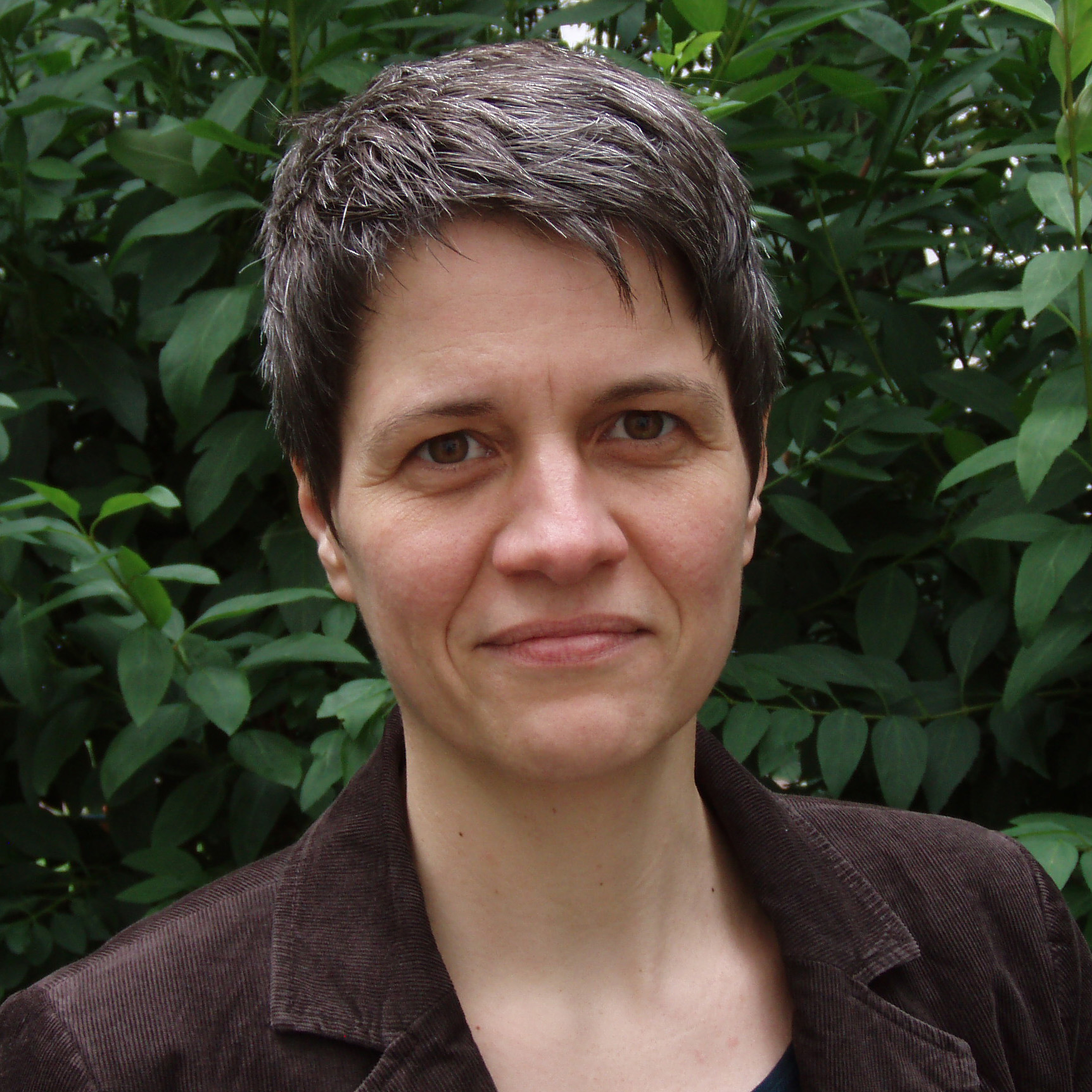
Dr Corinna Tomberger, art historian and social scientist, is a freelance researcher with focus on memory culture and gender. She has worked as a lecturer in gender studies at Humboldt-Universität zu Berlin and held a guest professorship in visual culture at Universität der Künste Berlin from 2012 to 2014. She has contributed to historical exhibitions at the Ravensbrück Memorial and the Haus der Geschichte der Bundesrepublik Deutschland in Bonn. She also works in the field of higher education management, currently as staff member of the chief equality manager of Freie Universität Berlin. Besides her book on the counter-monument (Das Gegendenkmal, Bielefeld: Transcript 2007) Tomberger has published numerous articles on memorials and memory culture in Germany and Austria, lately focussing on memorializing the persecuted homosexuals.
Selected publications: Späte Anerkennung oder symbolpolitisches Feigenblatt? Zur Bedeutung eines Mahnmals für homosexuelle und transgender NS-Opfer in Wien, in: QWIEN – Zentrum für schwul/lesbische Kultur und Geschichte/Wiener Antidiskriminierungsstelle für gleichgeschlechtliche und transgender Lebensweisen, eds.: ZU SPÄT? Dimensionen des Gedenkens an homosexuelle und transgender Opfer des Nationalsozialismus (Wien: Zaglossus 2015), pp. 15-66; Homosexuellen-Geschichtsschreibung und Subkultur. Geschlechtertheoretische und heteronormativitätskritische Perspektiven, in: Michael Schwartz, ed.: Homosexuelle im Nationalsozialismus (München: De Gruyter 2014), pp. 19-26. Das Berliner Homosexuellen-Denkmal: Ein Denkmal für Schwule und Lesben?, in: Insa Eschebach, ed.: Homophobie und Devianz. Weibliche und männliche Homosexualität im Nationalsozialismus (Berlin: Metropol 2012), pp. 187-207.
